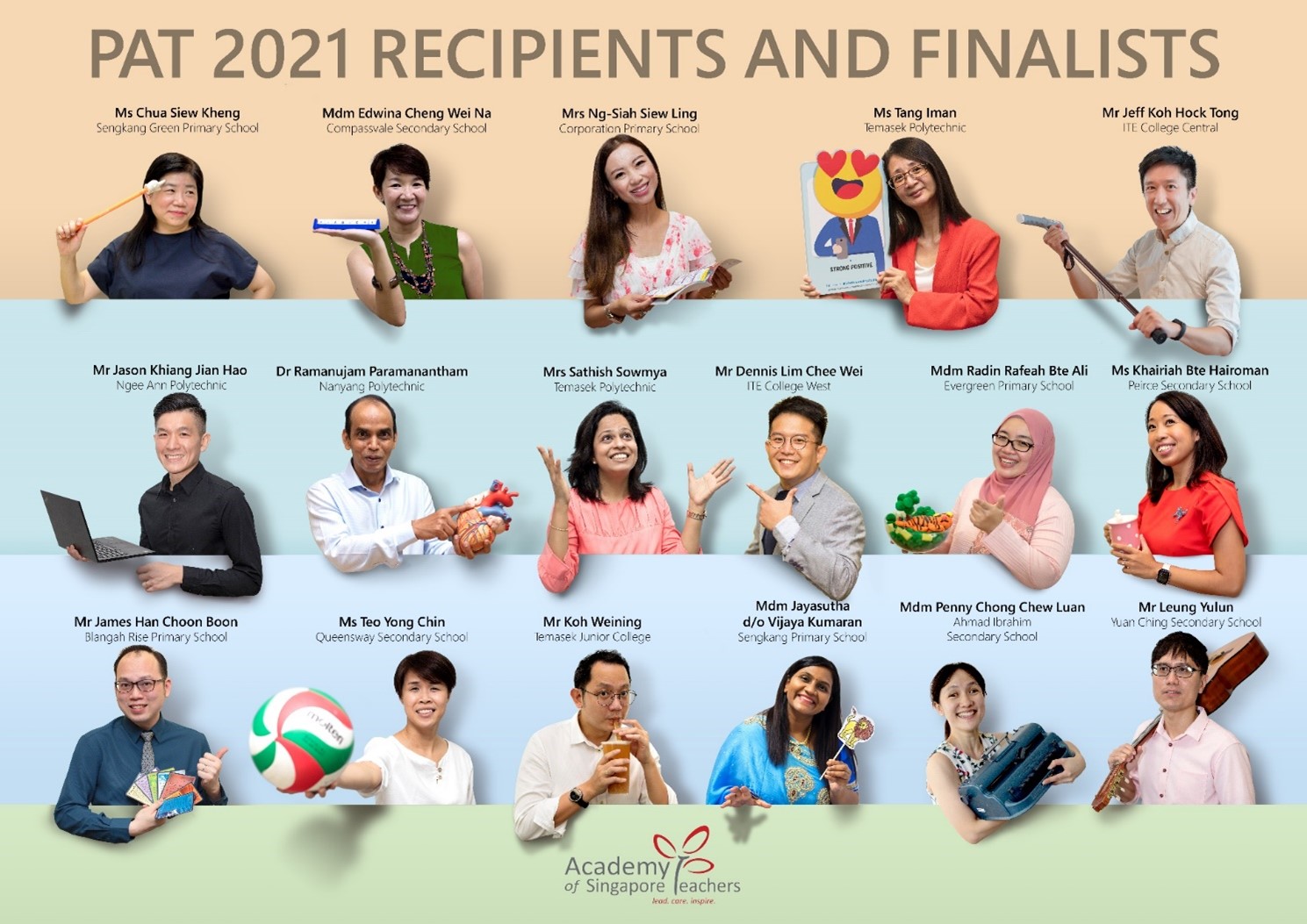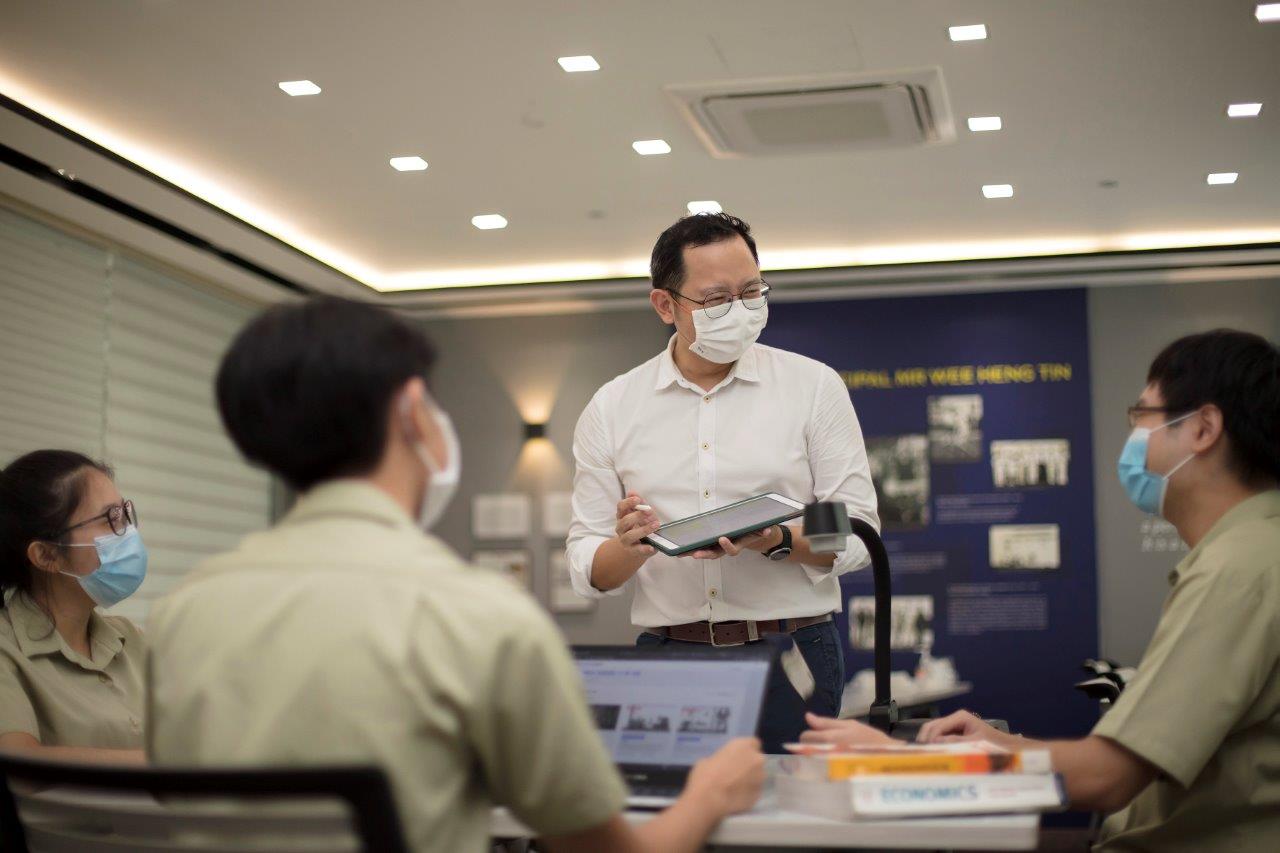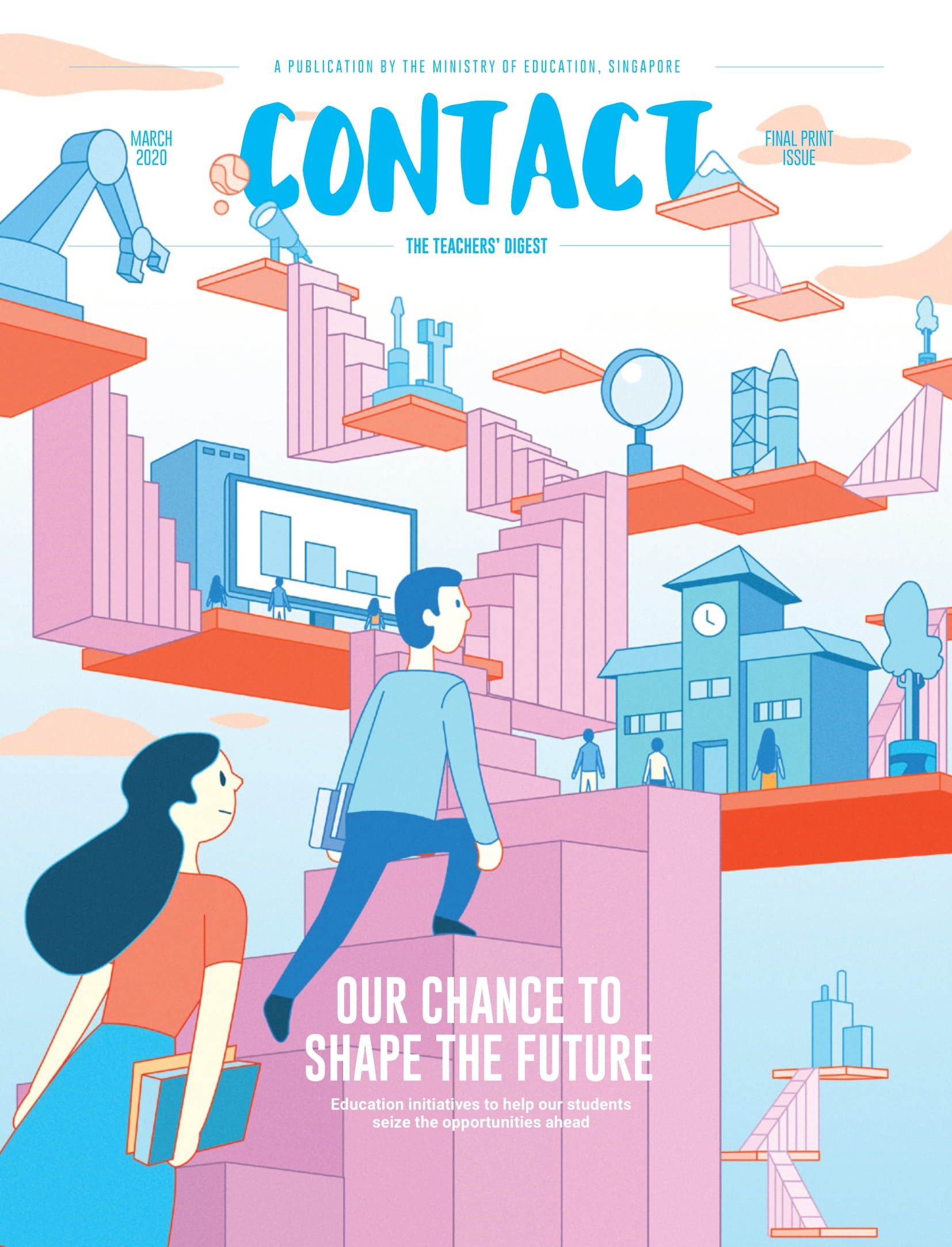Most educators will agree that more than achieving stellar grades, it is crucial that students find joy in acquiring new knowledge and skills. For Koh Weining, the Head of Department for Economics at Temasek Junior College (TJC), he walks the talk with his infectious embrace of technology and its applications.
Among his students and co-workers, Weining is known for his gung-ho approach to blended learning. Since 2018, the forward-thinking educator has begun the “flipped classroom” model with some classes, applying technology to teaching in a way that his peers had not attempted before.
‘Flipping’ the learning process through instant feedback
Weining explained how traditionally, college students were required to collect and read their notes prior to lectures to improve content retention, before going away to apply what they had learned when tackling their homework. However, students come to lectures with different levels of preparedness, and many end up not grasping the concepts from the large-group presentation.
This makes the application of knowledge more difficult when students attempt their homework, and they will have to wait for tutorials before the feedback loop is closed, by which time, some discouragement may have set in.
Weining looked into improving the process by turning what would have been taught in a 50-minute, 400-pax lecture, into bite-sized videos hosted on the Student Learning Space (SLS), the home-based learning platform developed by MOE.
Each lecture topic is split into multiple five-minute segments with multiple-choice questions in between to test the students’ understanding. Their answers – right or wrong – provide useful data to Weining, which inform him on where and what to focus on during upcoming lectures. Weining also dishes out activities such as competitive quizzes during lectures, which in turn help him to refine what the tutorial should cover.
“There is now significantly less homework between a lecture and tutorial; at the tutorial, we do hands-on practice and they get immediate feedback. The application of knowledge is the more difficult part of learning, and this time, the teacher is there to hold their hands,” explained Weining, who piloted this learning model with just one topic among a few classes before implementing it across all Economics classes in 2020.
Weining’s passion for tech in education had its beginning years prior to joining TJC. During his stint at MOE’s Curriculum Planning and Development Division, he played an active role in converting a basic set of economics syllabus onto SLS for teachers to adapt from.
“I had considered the option of teaching at a secondary school, which would have been a different challenge and an expansion of my teaching horizon. But having developed the SLS resources, I returned to Economics to complete the cycle, and see out its execution on the ground,” he shared.
‘We are teachers and students at the same time’
As an early adopter of blended learning in a JC, Weining was not guaranteed of success and the innovator was all ears to honest feedback.
“We ask the students periodically for their thoughts. If the packages are too long for example, we make an effort to scale back,” he explained. “We are open about the fact that we are learning and trying to make their learning better. In the process of experimentation, there will be hiccups.”
Humble and dynamic in equal measure, Weining shows that it is possible to be both a teacher and student at the same time. “Learning is a skillset and a disposition. When we learn, that disposition can be caught by our students,” he said.
There was another case in point. Though blended learning was gaining ground with his students, Weining faced a challenge when the Circuit Breaker was implemented in 2020. However, his openness towards experimentation and positive attitude towards learning led him to adopt Nearpod, an application that stimulates interaction in classrooms, which was introduced by a former student who had joined his department.
“You can immediately see which student is going down the wrong rabbit hole. The feedback loop is much tighter in class now,” he said. Nearpod became such a hit that the team has continued using it even when students attend classes in person.
Not only has interactivity increased in class, students have also taken greater ownership of their learning through the ability to rewatch online lectures. A survey done in the earlier days also showed that students who underwent the blended model reported higher motivation and better scores — by about 10% — than those who did not.
Weining is eagerly looking forward to exciting possibilities for edu-tech in future such as AI-powered adaptive learning — where students are automatically directed to an earlier chapter if their performance on a quiz determines the need — and devising more project-based approaches to learning, with SLS supporting students’ content acquisition.
Challenging students to learn authentically
Weining does not just harness tech in his bid to get students to embrace Economics. He often brings in real-world issues so students can relate to the subject.
Covid-19 proved to be a goldmine for this purpose. When more old folks were observed in the lines to purchase face masks, he brought up the concept of opportunity cost for working adults to do the same. The roll-out of vaccines gave students the opportunity to discuss ways for the public to embrace merit goods.
Every year, the department invites students to a live screening — complete with movie snacks — of the Singapore government’s Budget speech with a running commentary by a teacher. “This is our way of building authenticity into the syllabus, to bring it alive,” he said.
As a result of proactively connecting the syllabus to real-world events and making curriculum notes more succinct since Weining joined the school in 2018, about half of the H2 Economics students are now scoring As at the A-levels — up from 35% to 40% before.
Outside of Economics, Weining pushes his charges in the Temasek Humanities Programme, a programme for top students to broaden their perspective by researching social issues like inequality and hone leadership skills through hands-on practice.
For instance, he converted the annual Temasek Distinguished Speaker Series to a student-led project. Across half a year, students homed in on a theme — 2020’s theme was climate change — and saw to the nitty-gritties of pulling off an engaging conference. These include organising pre-conference sessions for their peers to understand the topic on a deeper level, delegating tasks, and managing the schedule and budget.
“We give them the autonomy to run the event and I look at broad timelines. Economics knowledge comes in handy too. It’s all about resource management,” he remarked. In the end, a total of 500 participants comprising students of TJC and other schools attended the engaging event.
Not one to close the door on the unconventional, Weining supervised a project that was out of his domain. A student decided to investigate whether memes can hold the answer to whether a country’s culture is individualist or collectivist. This was not a question of Economics but Weining was on board. “Using a topic that the humanities students were curious and passionate about, we could help them see the value of a rigorous inquiry process to better understand our humanity.”






.jpg)
.jpg)